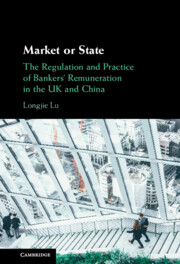Refine search
Actions for selected content:
6 results
4 - The Post-GFC Practice of Bankers’ Remuneration in the UK
-
- Book:
- Market or State
- Published online:
- 15 September 2022
- Print publication:
- 22 September 2022, pp 64-88
-
- Chapter
- Export citation
8 - Market or State: Differences in the Regulations and Practices of Bankers’ Remuneration in the UK and China
-
- Book:
- Market or State
- Published online:
- 15 September 2022
- Print publication:
- 22 September 2022, pp 206-227
-
- Chapter
- Export citation
2 - The Pre-GFC Practice of Bankers’ Remuneration in the UK
-
- Book:
- Market or State
- Published online:
- 15 September 2022
- Print publication:
- 22 September 2022, pp 10-38
-
- Chapter
- Export citation
1 - Introduction
-
- Book:
- Market or State
- Published online:
- 15 September 2022
- Print publication:
- 22 September 2022, pp 1-9
-
- Chapter
- Export citation
3 - The Regulation of Bankers’ Remuneration in the UK
-
- Book:
- Market or State
- Published online:
- 15 September 2022
- Print publication:
- 22 September 2022, pp 39-63
-
- Chapter
- Export citation

Market or State
- The Regulation and Practice of Bankers' Remuneration in the UK and China
-
- Published online:
- 15 September 2022
- Print publication:
- 22 September 2022
